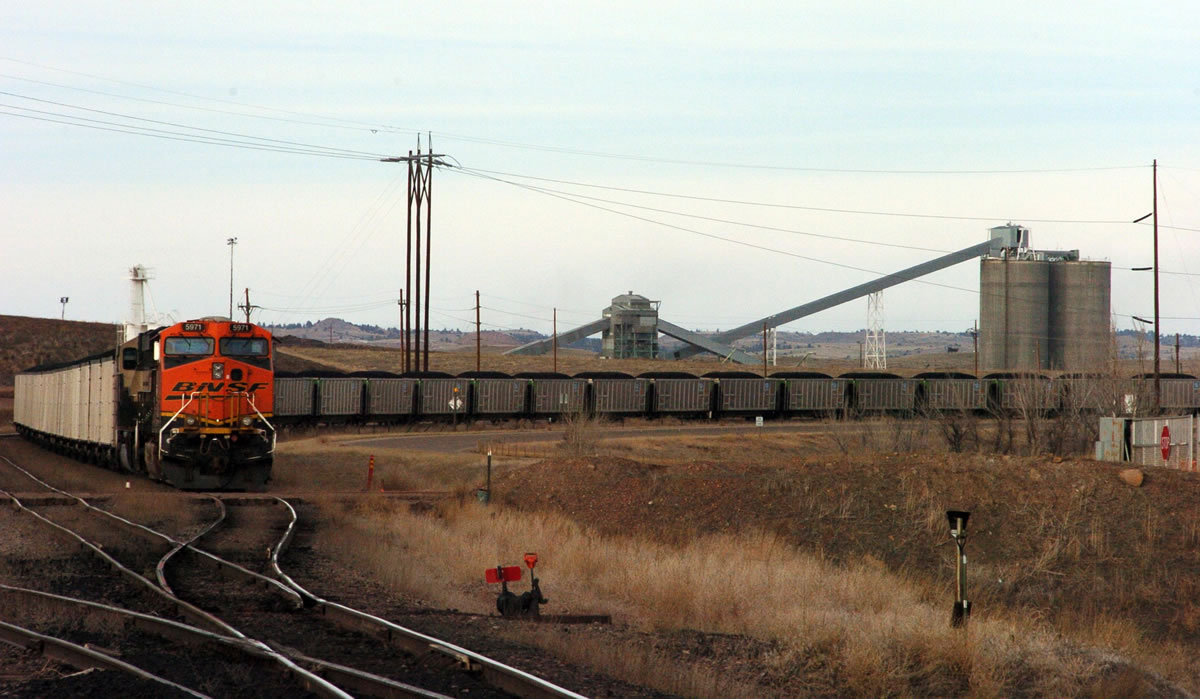The Pacific Northwest is no longer as big a target for global energy companies looking to export coal from the West Coast to energy-hungry China and other countries.
But even though the number of coal-export terminal proposals has dropped from six to three, the issues of potential environmental harm and jobs remain the same.
More than a year ago, companies were proposing as many as six coal-export terminals in Washington and Oregon. Just this week, energy company Kinder Morgan became the latest corporation to jettison its plans. It cited logistical challenges that hampered its proposed coal-export facility downstream of Portland along the Columbia River.
That decision further whittled the initial list of six planned facilities to three: one proposed near Bellingham, another in Longview and one in Boardman, Ore.
The reduction is no surprise to some, although backers of coal-export facilities say they believe the remaining three terminals will get built. BNSF Railway Chairman and CEO Matthew Rose predicted last summer that the market would end up supporting the development of two, “maybe three,” coal terminals. Brett VandenHeuvel, executive director of Columbia Riverkeeper, said Thursday he’s not surprised, given the opposition and concerns raised by local governments and the public. And that opposition, he said, remains strong.
Bill Watson, energy analysis team leader for the U.S. Energy Information Administration, said the history of proposals to export coal from the West Coast to overseas markets “is not very encouraging.” He cited a failed attempt in the early 1990s to build a facility in Los Angeles as just one example.
In that case, Watson said, “nobody foresaw the growth of coal production in Australia, which brought coal to market at a lower price.”
The Energy Information Administration says it expects total U.S. coal exports will decline this year from a record 125 million short tons in 2012. But the level in 2013 will remain above 100 million short tons for the third straight year, the agency said.
“The primary reasons for the expected decline in coal exports include continuing economic weakness in Europe, lower international coal prices, and increasing production in Asia,” according to the EIA.
‘At the very beginning’
Plans to export coal from the Northwest have prompted opposing campaigns. Environmentalists and backers of renewable energy point to global warming, increased train traffic and emissions, and other health concerns as reasons to stop the coal terminals. Energy companies and trade groups say the remaining three terminal proposals will generate thousands of jobs and millions in tax revenues for public services.
Near Bellingham, Pacific International Terminals, a subsidiary of SSA Marine Inc., proposes building and running the Gateway Pacific Terminal. The terminal could accommodate 54 million import/export tons of bulk commodities per year, largely coal exports.
In Longview, Millennium Bulk Terminals Longview LLC, owned by Ambre Energy and Arch Coal Inc., wants to export up to 44 million metric tons of coal annually.
Under the third plan, dubbed “Morrow Pacific,” Ambre Energy wants to haul 8 million tons of coal annually from the Port of Morrow to the Port of St. Helens. Coal would be hauled on covered barges from the Port of Morrow near Boardman, Ore., 190 miles down the Columbia River to the Port of St. Helens, Ore., where it would be loaded onto vessels headed for Asia.
Ambre hopes to secure permits in early 2014.
Linda Kent, a spokeswoman for the Washington Department of Ecology, said regulators are still working on the scope of environmental impact statements that will eventually be issued for the projects near Bellingham and in Longview.
“We’re at the very beginning part of this whole process,” she said Thursday. In the case of the Bellingham-area project, Kent said, regulatory agencies have collected about 125,000 public comments as part of the process used to shape how the project will be evaluated.
In a statement issued this week, the Alliance for Northwest Jobs and Exports — a trade group that backs coal-export plans — said it believes the remaining three terminals will go forward.
“We look forward to working with our regulatory agencies as our Morrow Pacific, Gateway Pacific Terminal and Millenium projects continue forward, and are confident they will be successful,” the group said.
VandenHeuvel, of Columbia Riverkeeper, said he’s not feeling comfortable now that the original list of six coal-export proposals is down to three.
“The public and elected officials are learning” about the potential harmful impacts “to our health, to our river, to our communities,” he said. “People are standing up to it.”
The Associated Press contributed to this story.




